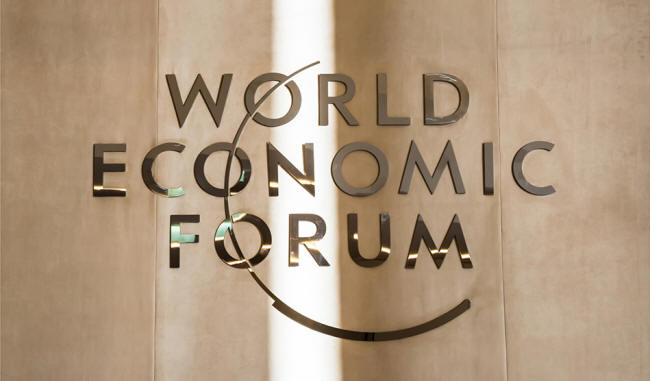|
by Roger W. Koops
It's possible that this
formed out of a gigantic error, rooted in a sudden ignorance of cell
biology and long experience of public health. It is also possible
that a seasonal respiratory virus was deployed by some people as an
opportunity to seize power for some other purpose.
Even before
the WHO
declared a pandemic in March 2020 (at least several months behind
the actual fact of a pandemic) and before any lockdowns, there were
media blitzes talking about the "New Normal" and talk of the "Great
Reset" (which was rebranded as "Build Back Better").
...were actively lobbying
governments to buy their vaccines as early as February 2020,
supposedly less than a month after the genetic sequence (or partial
sequence) was made available by China. ...and others had either been lobbying for or pursuing the lockdown strategies for many years.
But still, the scope of
the actions seemed too large to even be explained by those names
alone.
These players have been
connected to the "public health" aspect but that seemed to be only
scratching the surface.
...what do you think that they have in common?
Yes, they are all
pampered and stumble over themselves, but that is also not the
connection.
But, there is more to it than that and I will give a hint by providing a link with each name:
They are all associated with,
This is a private organization that has no official bearing with any world governance body, despite the implication of the name.
The WEF was the origin of the "Great Reset" and I would guess that it was the origin of "Build Back Better" (since most of the above names have used that term recently).
If you think that the WEF membership ends with just leaders of countries, here are a few more names:
Allow me to introduce more of the WEF by giving a list of names for the Board of Trustees.
You can see a cross section of political and economic leaders on the board.
The leader of the organization, that is the leader of the Board, is still Klaus Schwab. He has built an impressive array of followers. If you want to really see the extent of influence, go to the website and pick out the corporate name of your choice.
Klaus Schwab
There are many to choose from:
The extent of reach is huge even beyond the worldwide leader network.
For example, we all know what Bill Gates has been doing with his wealth via the Bill and Melinda Gates Foundation (BMGF).
But, the Wellcome Trust is equal to the task.
One named Jeremy Farrar, of the United Kingdom SAGE and lockdown fame - arguably the architect of the US-UK lockdowns in 2020 - is closely associated with WEF.
Concerning the reach that can occur, let me give some examples from the BMGF alone, and it comes from the time that I spent in 2020 reading their extensive funding list.
A few years ago, the BMGF awarded the Institute for Health Metric Evaluation (IHME) a ten-year, almost $280 million award.
IHME (associated with the University of Washington in Seattle) was at the forefront of the computer modeling that was driving the lockdowns and the non-pharmaceutical Interventions during 2020.
People have seen their name often in print or on MSNBC or CNN.
In 2019, IHME awarded the Editor of the Lancet (Dr. Richard Horton) a $100,000 award and described him as an "activist editor."
The Lancet, once considered one of the best medical journals, has been at the forefront of censoring opposing scientific viewpoints since 2020 and publishing "papers" that were not fit to be published.
I never could understand what it meant to be an "activist" editor in a respected scientific/medical journal because, stupid me, I always thought that the first job of the editor was to be impartial.
I guess I learned in 2020 how wrong I was. Of course, the Lancet is also heavily funded from pharmaceutical companies such as Pfizer (also a member of the WEF).
But, the BMGF reach goes far beyond just IHME and these connections have been quite recognizable.
Here are some examples of the organizations and moneys received during 2020 alone broken down by areas.
Bill and Melinda Gates Foundation Grants 2020
Bill Gates has also invested heavily in Moderna and his investments have paid out nicely for him.
The BMGF has also given close to $100 million to the Clinton Health Access Initiative.
The questions now have to be asked:
Please note, I am not a "Covid Denier" since the virus is real. But, has a normal seasonal respiratory virus been used as an excuse to activate the web?
The next questions, for those of us who at least pretend to live in "Democratic" societies, have to be:
Can we anticipate their next moves?
There may be some hints...
The Next Move
Jeremy Farrar of The Wellcome Trust recently wrote an article for the WEF with the CEO of Novo Nordisk Foundation, Mads Krogsgaard Thomsen.
It is a summary of a larger piece written for and published by the Boston Consulting Group.
In this article, they propose that the way to "fix" the problem of antibiotic resistant bacteria is via a subscription service. That is, you pay a fee and when you need an antibiotic, presumably an effective one will be available for you.
My guess is that they have the same philosophy for vaccines and that certainly seems to be the approach with Coronavirus. Keep paying for and taking boosters.
In view of this philosophy, the vaccine mandates make sense.
This approach is so shortsighted, from a scientific viewpoint, it astounds me.
But, like much of recent history, I think science has little to do with it. The goal is not scientifically founded but control founded.
After the discovery of penicillin almost one century ago, there were scientists who warned that antibiotic usage should be considered very carefully in practice because evolutionary pressures would lead to antibiotic resistant species of bacteria.
At that time, they were considered to be rogue scientists; after all, didn't we suddenly have a miracle cure for many deadly problems?
From the time of discovery, it took over a decade before fermentation methods were developed to produce sufficient quantities of antibiotics to be practical.
These methods allowed for the use of penicillin on the battlefield towards the end of WWII and undoubtedly saved many lives then and later in subsequent wars (Korea and Vietnam) by preventing serious infections resulting from wounds sustained during battle.
However, it did not take long before the medical establishment was handing out antibiotics like candy. I experienced this myself when I was a child in the 1960s.
It seemed like every time we went to the doctor, no matter what the problem, I was given a series (not just one) of injections of penicillin.
The answer was:
I cannot count how many times I was "jabbed" as a child.
It didn't take long before resistance species started to appear.
The result was that more and more money was pumped into R&D for antibiotics. When I was in graduate school during the 1980s, one sure way to get some NIH funding was to tie the research into the "antibiotic" search. Antibiotics became big business.
We now have several classes of antibiotics that are used for specific cases.
We have,
All in all, physicians have over 50 different choices for antibiotics.
The most common place to encounter antibiotic resistant bacteria is in a hospital. Most people who get some sort of infection in the normal routine of life, like a sinus infection or skin infection, will not likely encounter an antibiotic resistant species.
Except there has been another source of the problem and that has been in the food supply. Antibiotics have become very popular with large scale meat production facilities of all types including beef, poultry, swine, and even fish. These include actual farms where the animals are raised as well as in the processing of the meat.
The overuse of antibiotics in these industries has also produced resistant forms of bacteria.
For example, in attempts to limit the bacteria e. coli, common to mammalians, antibiotics have been used and this has resulted in some antibiotic resistant forms of e. coli. An infection via e. coli (antibiotic resistant or not) can be avoided by proper cooking and handling of meats.
However, sometimes that does not happen and there are e. coli outbreaks (also from improperly washed vegetables that may use contaminated irrigation water).
For most healthy people, experiencing e. coli (either resistant or not) is only a passing discomfort that includes intestinal cramps, diarrhea, and other GI complaints.
Depending on the amount of contamination, a person may suffer for a day or two or for several days.
But, with some people, it can be serious or deadly (such as in elderly people in poor health and young children). If that occurs, then the presence of an antibiotic resistant form can be a serious matter. Presence of a non-resistant form can be treated more readily.
A few years ago I had pneumonia; a relatively mild case. I was given a choice of in-patient treatment or out-patient and it was a no-brainer. If I wanted to make sure that my pneumonia could be handled by the normal course of antibiotics (I was given a quinolone), staying at home and away from the hospital was important.
I knew that hospital-acquired pneumonia could be a much more serious situation.
So, I stayed at home and easily recovered. That did not mean I was guaranteed getting a more serious resistant form in the hospital but I understood that the risk was much greater.
Producing more antibiotics and giving them on subscription to the users is not the answer. That will only lead to more resistant forms and there will be this continuing loop of antibiotic use.
But, if the actual goal is societal addiction to antibiotics out of fear, just like addiction to universal Covid vaccines out of fear, then it makes sense.
Finding a few universal antibiotics that deal with the resistant forms is important and it is also important to use those sparingly and only as a last resort.
In addition, better management of antibiotic use in our society would go a long way to attenuating the problem.
There is nothing particularly controversial about that observation. It was accepted by nearly every responsible health professional only two years ago.
But we live now in different times of extreme experimentation, such as the deployment of world-wide lockdowns for a virus that had a highly focused impact, with catastrophic results for the world.
It was the WEF on March 21, 2020 that,
Today that article, never pulled much less repudiated, stands as probably the most ridiculous and destructive suggestion and prediction of the 21st century.
And yet, the WEF is still at it, suggesting that same year that at least,
We can easily predict that the WEF's call for a universal and mandated subscription plan for antibiotics - pushed with the overt intention of shoring up financial capitalization of major drug manufacturers - will meet the same fate:
|



